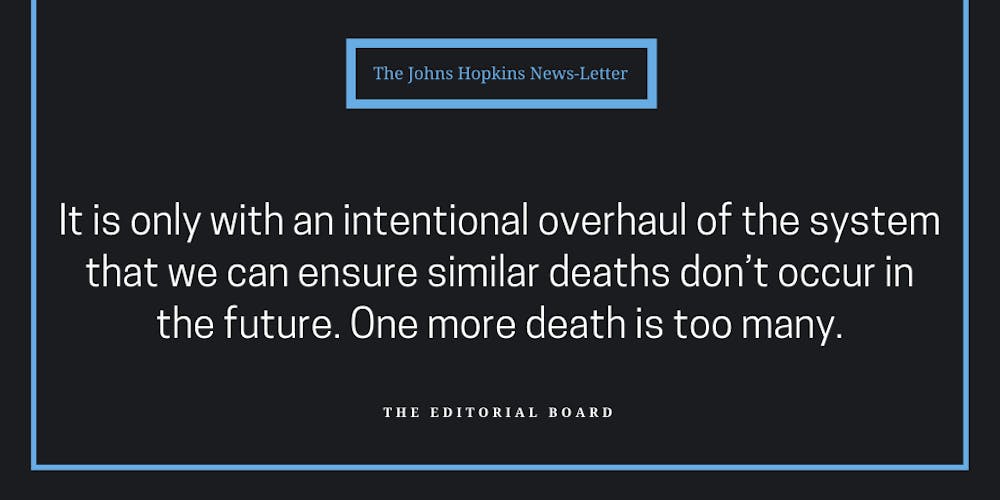During Minneapolis police officer Derek Chauvin’s trial regarding the murder of George Floyd, the city was brought to the forefront of national news once again. Last Sunday, Daunte Wright, a 20-year-old Black man, was shot and killed by a white police officer.
Wright was driving through the Minneapolis suburb of Brooklyn Center when he was pulled over for an expired registration tag. Officers determined that Wright had an outstanding gross misdemeanor warrant, and as they attempted to take him into custody, Wright reentered his car. At this point, officer Kim Potter deployed her weapon and fired a single shot at Wright. Despite 26 years of experience — including as a field trainer — she claims that she intended to use her Taser when she grabbed her gun.
He died at the scene as officers and medical personnel attempted to administer life-saving measures. Potter subsequently resigned from the force and has since been charged with second-degree manslaughter.
Wright, Floyd and Philando Castile, who was killed in 2016, were all murdered in Minneapolis neighborhoods within 10 miles of each other. This, and the fact that Wright’s tragic death coincides with the trauma brought up by Chauvin’s trial, reminds the city that the relationship between its citizens and the police forces sworn to protect them is broken.
These incidents have occurred enough to disprove the often-cited “bad apple” defense. Wright’s case is not the first time that a cop claimed to accidentally discharge a gun rather than a Taser.
Wright’s murder is one of countless fatal interactions between Black people and police in America since the 1790s. The original inception of “police forces” stemmed from Southern slave patrols, which existed to control the Black population out of fear of uprisings. The patrols later morphed into groups concerned with upholding Jim Crow laws and Black codes, policing the movement of Black people in every space. These attitudes of the past have lasting impacts today; officers are far more likely to report positive relationships with white, Asian and Hispanic communities than with Black ones.
Despite a year of protests against police brutality, governing bodies have moved slowly to enact reform. Maryland is a part of this trend. Back in the early 1970s, the state ratified the Law Enforcement Officers Bill of Rights, making it extremely difficult to discipline and control police officers’ actions. This became a model for police rights across the country.
Finally, the Maryland General Assembly voted to repeal the Bill of Rights on Saturday as part of a large-scale police reform movement. However, neither this repeal nor related bills passed easily. They required an override of Governor Larry Hogan’s veto, as he feared that the legislation was “overtaken by political agendas that do not serve the public safety interests of the citizens of Maryland.” Hogan also cited potential damage to police recruitment efforts as a reason for vetoing the bills. We question Hogan’s prioritization of police careers over the safety of Maryland residents.
Last summer, protesters called for police funds to be allocated to community-based policing efforts. In September, the state received over $1.3 million in grants from the Department of Justice to begin working on these solutions.
Community-based policing has already shown success in cities across the country. For example, Camden, N.J. abolished its police department in 2013 and rebuilt a new one under county control. Reforms were introduced to reduce violence, and complaints regarding excessive force dropped accordingly.
While Camden’s victory may not be a nationwide reality, the status quo cannot remain in place, which legislators in Maryland seem to understand.
Although Hopkins refuses to cancel its proposed private police force, we have seen signs of change. Amid the George Floyd protests, Hopkins announced a two-year suspension on implementing the Johns Hopkins Police Department (JHPD). A new initiative, the Innovation Fund for Community Safety, was later established to support community-based alternatives to policing. The Maryland House of Delegates may also help in this regard; in February, they debated repealing the laws that gave Hopkins permission to establish the JHPD in the first place.
While neither Hopkins nor the state has come to a clear conclusion, we are encouraged by these discussions and urge readers to demand further action from elected officials. We also call on Hopkins to provide regular updates on the Innovation Fund, given that proposals were due almost two months ago.
Daunte Wright and George Floyd, along with countless others, were both victims of a deeply-flawed policing system. They are not the first, and without change, they will not be the last. It is only with an intentional overhaul of the system that we can ensure similar deaths don’t occur in the future. One more death is too many.





